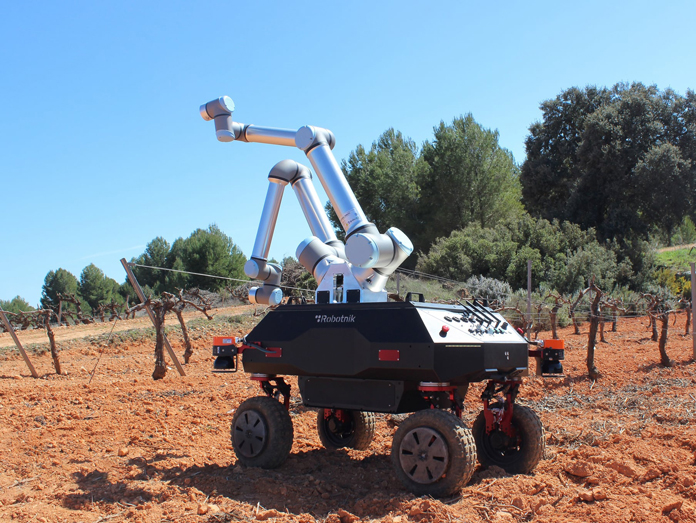With the growing population and climate change, agricultural productivity growth is unlikely to meet the increased demand for food. Besides the increasing pressure to produce more, there is an overall need for higher quality and sustainable cultivation. Precision agriculture combined with intelligent robotic technologies can push to that direction.
Just imagine: A mobile dual arm robot with advanced cognitive capabilities for selective harvesting of high value crops, such as grapes of different varieties, in a human-like manner, moving autonomously in the vineyard and harvesting only the highest quality grapes, determining the quality of the wine that will be produced or the grapes that will find their way to the table. Or the same robot patrolling daily and picking grapes, and at other times, picking diseased grapes or assisting the vine grower in other tasks.
This is no fiction, but rather the tangible results of the European research project BACCHUS, which aims to develop an innovative robotic system, equipped with the appropriate sensors and with new methods of intelligent control, and machine vision and learning. The BACCHUS intelligent mobile robotic system promises to reproduce hand harvesting operations, while at the same time take the manual legwork out.
Smart robots creating added value
The robotic system is equipped with hyperspectral imaging cameras, which, combined with machine learning methods, will be able to evaluate each fruit in real time. The system then decides (again in real time) whether or not to harvest a particular fruit.
“Our goal is to develop a robot that can improve agricultural production in many areas. We chose the vineyard, as it is a crop that is particularly linked to the Greek tradition and can produce high-value products,” explains Prof. Zoe Doulgeri, from the Department of Electrical & Computer Engineering, Automation & Robotics Lab of the Aristotle University of Thessaloniki, while adding that “the integration of robots into agricultural production not only benefits the overall quality, but also significantly improves the working conditions of farmers and helps increase the competitiveness of European wine growers.”
In fact, this July, a prototype of the BACCHUS mobile dual arm robot is expected to start “working” in a vineyard on the outskirts of Thessaloniki, in northern Greece.
The BACCHUS project has received funding from the European Union’s Horizon 2020 research and innovation program, and started in January 2020. It is expected to be completed in September 2023.
The project is coordinated by the Aristotle University of Thessaloniki, while its other partners include the Centre for Research and Technology – Hellas, Ktima Gerovassiliou, the University of Lincoln (UK), and the Universita degli Studi di Torino (Italy), as well as the private companies Robotnik Automation (Spain), and Saga Robotics (Norway).



















